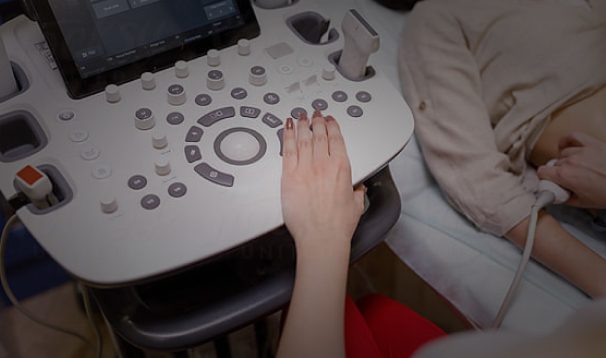HTEC’s Engineering & Delivery Lead Uroš Stanišić has recently marked 15 years of a fruitful career in the IT industry—a perfect occasion to reflect on his professional journey and the hidden forces behind his evolving responsibilities.
The global ICT sector has experienced enormous expansion in the previous decades. This has been accompanied by the continued standardization and growing public understanding of different professions within the industry.
Despite these trends, the role of quality assurance (QA) engineers still possesses a sort of mystical quality. This is in no small amount due to the somewhat intangible nature of the required skill set, which, aside from the technical and theoretical know-how, often includes abilities such as “outside-the-box thinking” and “creative problem-solving”.
HTEC’s Engineering and Delivery Lead Uroš Stanišić has recently marked 15 years of a fruitful career in the IT industry, most of it spent deep in the trenches of project work as a QA engineer. Starting out as a novice software tester to become a mentor, leader, and recognized authority on QA matters, he is deeply familiar with all aspects of the profession. And while he recognizes the value of both the technical expertise and the ability to keep an open mind and approach the same questions with fresh perspectives, he believes that a different personality trait is fundamental to the success and the continuous development of a QA engineer. In his opinion, it’s curiosity.
“It’s not an entirely technical profession, especially not at the beginning. There are certain technical skills that can help you at the start, but you can develop them over time. The most important thing is a curious mind. We need to be curious about figuring out how certain things work or how they should work. We need to be inquisitive and ask a lot of questions, a lot of whys and hows. Curiosity powers our constant desire to learn and develop our skills. If we want to stay relevant in our work, we need to learn each and every day. That may sound like a burden, but to me, it brings the joy of new and creates new learning opportunities in project work and on the career path.”
Uroš traces the roots of his own curiosity to his early days, describing himself as a “tinkering” kind of child.
“It began with toys like Lego and then graduated to more complicated tinkering in the form of ‘repairs’ of mechanical devices in my father’s garage. I was interested in seeing how things work—although I can’t say that I was always successful at putting them back together after I was done playing.”
It was that very same curiosity that ultimately led him to a career in software testing. As he was nearing the end of his Engineering Management studies at the Faculty of Technical Sciences in Novi Sad, Uroš admits that he only had a vague idea of what his future career would look like.
“I imagined that I would be doing some kind of management work, most likely in an IT company, as the ICT sector was the primary focus of my curriculum. Through one of the assistants at the university, I was referred to a small emerging IT company that was looking for software testers. I always loved being around computers, ever since I got a Commodore 64 when I was 10 and all the way to my adult days, but I didn’t think I would work with them in a hands-on capacity, so I was intrigued by the opportunity. Also, I was coming fresh out of university with no immediate work opportunities, so I thought why not, let’s give it a go.”
The year was 2006, and the company in question was Execom. With the smile of an industry veteran, Uroš admits that prior to the job interview he barely knew that the profession even existed, let alone what it entailed. However, it wasn’t long after he started working that he noticed parallels between software testing and his childhood interests.
“The core of software testing is figuring out how things work and what’s not working. There’s always a nice sense of moving forward because you are constantly learning about things that you are testing, about new approaches, methodologies, technologies, and so on. Learning is a never-ending story, which might be scary to some, but it’s what grabbed me in a nice way when I started working and I kind of stayed.”
Back then, the soon-to-be booming IT scene in Serbia was still in its infancy, and a professional software tester was a near-mythical creature. Uroš was the second software tester at Execom and his senior had only slightly more experience. With limited informational resources and a non-existent QA community, Uroš recalls a lot of trial and error and learning by doing (“We didn’t even know how much we didn’t know”, he jokes). However, the demanding, multi-faceted nature of work and early exposure to different clients and business domains both forced and enabled him to quickly find his feet and understand the full scope and potential of his new profession.
Asked whether he remembers a specific time when he realized that he could see a career in software testing, Uroš is quick to respond.
“Believe it or not, it was in the first month of my employment. I was totally overwhelmed by the opportunity and what it brings. I was in awe with the work itself and how it managed to have me interested and engaged. I don’t want it to sound like a cliché, but it truly felt like a dream job. I was really happy in that period, happy to go to work each and every day.”
The years that followed have fulfilled the promise of expanding professional horizons. Uroš had a front row seat to the regional IT boom. Execom was expanding as well, as did the responsibilities of a software tester.
“My growth was closely related to the company’s growth. As the number of clients grew, I was exposed to a variety of business domains and work cultures. At some point, I was the most experienced software tester in the company, and I became a sort of a go-to guy to do the initial testing setup on most new projects and assign the right people to the project. This placed me in a position to learn a lot about communication and communication styles, handling various sorts of people on different levels, both internally and with our clients. It was extremely useful for my current role as well.”
Eventually, Uroš became the Head of Testing at Execom, the role he held when the company was acquired by HTEC in early 2020. Having spent his entire career operating within the framework of one company, we were curious to learn how big of a change it was for him to find himself in a changed professional setting.
“Even though the nature of the work is very similar, the scope of HTEC’s services is much broader, as is the client portfolio. For me, it was a bit overwhelming to see how fast the company is growing, and I needed some time to adapt to the new circumstances. Foremost, I saw it as an opportunity to learn further and improve my skills. It is now a much bigger company, working in multiple markets and with many high-profile clients, which creates new opportunities to grow and evolve as a professional.”
Within the new professional framework, Uroš’s responsibilities have evolved to his current role of Engineering & Delivery Lead. Ultimately, just as he vaguely considered in his university days, he did end up in a managerial role in IT, albeit in a very roundabout way.
While he is no longer involved with software testing in a hands-on manner, his new role keeps him just as engaged and eager to learn.
“Similarly to when I started out in software testing, I’ve quickly grown to like my new role because I didn’t know what to expect. The previous experiences have helped, but it’s a whole different and much broader scope of responsibilities, so there’s a lot of things I needed to figure out. Before, my primary concern was the technical side of the process. To an extent, it still is one of my responsibilities, but there’s also building and managing client relationships, the needs of team members, the expectations of upper management, and the timely delivery of our project work—a lot of different things I needed to learn and still do.”
Uroš has his curiosity to thank for fueling his professional growth. Perhaps surprisingly, that same curiosity has never pushed him to a change of scenery. In that respect, he has become a bona fide rarity—essentially a one-company man with 15 years of experience under his belt and counting.
Uroš acknowledges that many of his peers he meets at conferences and other industry events are surprised by this fact.
“Many people in my professional network have asked me that same question: how come you stayed in one place for so long? My answer to that is always simple: I never got bored. From day one until now, I was always in a position to learn new things and make my work interesting. Even in periods when I was involved with one project for a long time, say several years, I was never bored. Every day I would discover and learn something new, whether from the technical perspective, domain perspective, or anything else. You can always find ways to develop yourself as a tester and a professional. Do things better than before, try out new things, and you’ll never be bored. “














